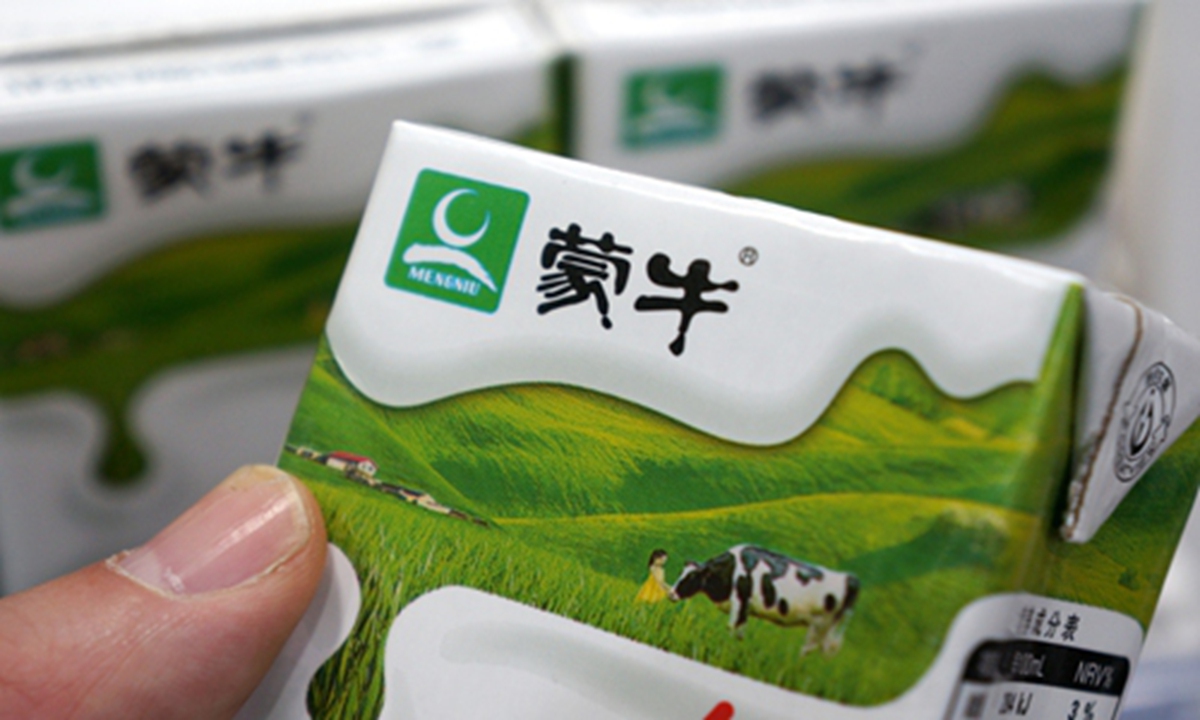
Photo: cnsphoto
The fate of a proposed purchase in Australia by Chinese dairy behemoth Mengniu Dairy has caught the attention of Chinese netizens. Despite Australian media reports that the Morrison government will block the A$600 million ($431 million) acquisition of Australian domestic dairy brand Lion-Dairy & Drinks, Mengniu claims that the approval process is ongoing.
To a certain extent, the conflicting messages highlight the delicacy and fragility of the current China-Australia relationship, and any uncertainty will only bring more downside risks to bilateral relations and lead to economic repercussions.
This is because the market now sees the move to block the Mengniu acquisition push as retaliation by the Australian government amid escalating bilateral tensions, as the reports emerged just after China announced plans to launch an anti-dumping investigation into wine imports from Australia.
Fundamentally speaking, the acquisition itself doesn't pose any national security threat or cause any risks of a shortage of supply in Australia. Even better, the deal is likely to support local employment by offering new jobs and enhance the brand's export opportunities to the Chinese market.
Therefore, banning a Chinese company from buying an Australian dairy brand doesn't make much economic sense.If the Morrison government has really made a decision that disrupts normal business activities and doesn't accord with market principles, it would send a frustrating signal to the market.
It would show that bilateral relations will continue on a downward spiral, with the Australian side willing to risk its global reputation in order to maintain a tough line against China in all aspects.
Whether the news comes from the Australian government or the media outlets themselves, it is not hard to anticipate how the market will react to and interpret the news at a delicate moment when bilateral ties are seriously strained due to Canberra's rising political hostility against China. The move to ban the takeover seems to be aimed at striking a blow against Mengniu, but it may offer a clue as to how cold bilateral relations could become.
While it is normal for countries to have trade frictions, it is particularly easy for the public to read too much into the political implications behind any bad news between the two countries.
What's more worrying is that its impact goes far beyond the news itself, which causes damage to investor and business confidence related to bilateral economic and trade exchanges. Given the heavy dependence of the Australian economy on trade with China, there is no denying that the Australian economy is more vulnerable to such a vicious cycle of political uncertainty.
In this sense, both sides should be wary of sending any signal that could cause rising concern among their business circles.


